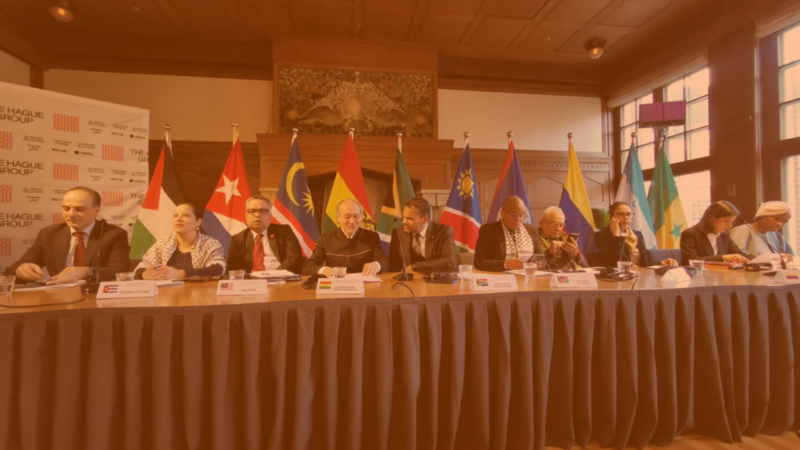In today’s Le Monde I call upon French progressives to vote for Macron in the second round of France’s Presidential election. The article explains my recommendation to French voters and finishes off with the following promise to Emmanuel:
“I shall mobilise fully to help you beat Le Pen with the same strength that I shall be joining the next Nuit Debout to oppose your government when, and if, you, as President, attempt to continue with your dead-end, already-failed neoliberalism.”
For the full article, in the original English, can be read below. (See also DiEM25 France’s collective position published earlier in Mediapart.)
A year ago, at an event at the New York Public Library, Noam Chomsky and I were asked by a member of the audience where we stood regarding the impending electoral duel between Donald Trump and Hillary Clinton. Both Noam and I answered that, in swing states, progressive Americans should hold their nose with one hand and vote for Clinton with the other.
Similar advice to voters had been issued years before, in April 2002, by all leading figures of the French left when Jacques Chirac and Jean Marie Le Pen squared off in the second round of that Presidential election: “Hold your nose and vote for Chirac!” was the left’s unanimous line.
Is Marine Le Pen genuinely a less unpalatable proposition than her father was? Is Emmanuel Macron somehow worse, from a leftwing perspective, than Jacques Chirac was in 2002? If not, why are some leaders of the left today unwilling to support Macron against Le Pen? This is a genuine puzzle to me.
Progressive French voters have every reason to be angry with Emmanuel Macron.
- His pursuit of labour market deregulation in the midst of a deflationary crisis was neoliberalism gone mad.
- His current proposals for a reconfiguration of the Eurozone that would turn it into a Federation-light plays straight into the hands of Wolfgang Schäuble’s grand plan for a permanent austerity union in which France will lose whatever control it has retained over her national budget (“I want the troika in Paris”, I have heard Schäuble say once) in exchange for a macro-economically insignificant Eurozone common budget.
- His more recent proposals for reducing wealth taxes and removing support from local government are on history’s wrong side.
Nevertheless, it is nothing less than scandalous for any progressive to keep an equal distance from Le Pen and Macron. Of course we all wish, at least those of us on the left, that the French electoral system were not binary. But it is. And given that it is, I refuse to be part of a generation of European progressives who could have stopped Marine Le Pen from winning France’s Presidency but didn’t. This is why I am writing this article: To support unequivocally Macron’s candidacy in the second round. The National Front cannot be allowed to stumble into the Elysee due to our misguided tactical indifference.
While that would have been my position whoever run against Le Pen on a non-racist ticket, there is something more in my endorsement of Macron:[1] During my tenure as Greece’s finance minister in early 2015 Emmanuel revealed to me a side of him that few progressives have seen. While the troika of Greece’s lenders and the Berlin government were strangling our freshly elected left-wing government’s attempts to liberate Greece from its debt-bondage, Macron was the only minister of state in Europe that went out of his way to lend a helping hand. And he did so at a personal political cost.
I remember vividly the afternoon of 28th June 2015, that awful Sunday when the Eurogroup had decided to close down our banks to punish our government for resisting yet another predatory loan and more anti-social, recessionary austerity attacks on the weakest of Greeks. It was at around 6pm when I received a text message from Emmanuel with which he informed me that he was struggling to convince President Hollande and Sigmar Gabriel, Germany’s Vice Chancellor, to find a solution: “I do not want my generation to be the one responsible for Greece exiting Europe,” he said.
Less than a minute later I replied: “But of course. Just know that we need an agreement that offers respite for the long run and a prospect that this situation will not be repeated in a few months.” Emmanuel agreed. He would talk to his President and get back to me: “Sustainable solution is key, I agree with you,” he wrote, proposing that he travel to Athens the next day, incognito, to have dinner with me and Alexis and to hammer out a deal between Athens, Berlin and Paris.
After midnight, while we were in the thick of our preparations for the bank closures, Emmanuel wrote again to inform me that President Hollande was planning to issue a statement in the morning to re-open the negotiations. I thanked him and waited. “Ok,” Emmanuel said a little later, “I am ready and I am sure that Alexis, you and me could find a deal… I will convince the President tomorrow. We have to succeed!”
Next morning, Monday 29 June, the day he was meant to come to Athens, Emmanuel called asking for a favour: Could Alexis contact President Hollande to confirm that he was ready and willing to receive Emmanuel in Athens as the French President’s emissary? I called Alexis, explained the opportunity that was being presented to us, and he agreed. An hour later, however, Alexis called me back, understandably angry. “What is going on?” he asked. “Hollande’s office replied that they have no idea about a possible mission by Macron to Athens. They referred us to Michel Sapin. Is he pulling your leg?”
When I relayed this exchange to Emmanuel, he sounded upset. His explanation shocked me: “The people around Hollande do not want me to come to Athens. They are close to the Berlin Chancellery. They clearly blocked Alexis’ approach. But let me have his [Alexis’s] personal mobile phone number. I shall go to the Élysée personally in an hour to speak with him [Hollande] and ask him to call Alexis directly.”
Some hours passed but Hollande never called Alexis. So I texted Emmanuel: “Do I take it there has been no progress? And that your trip has been cancelled?” A dejected Macron confirmed that he had been blocked – by his President and his President’s entourage. “I will push again to help you, Yanis, believe me,” he promised. I believed him.
Three months after my resignation, in October, I met Emmanuel again in Paris. He told me that in a summit meeting before his failed attempt to mediate with Alexis, he had used my line that the troika’s deal for Greece was a modern-day version of the Versailles Treaty. Merkel had heard him and, according to Emmanuel, ordered Hollande to keep Macron out of the Greek negotiations.
*****
By crushing the Greek Spring the troika did not only deal a blow to Greece but also to Europe’s integrity and soul. Emmanuel Macron was the only member of the establishment that tried to stop it. I feel it is my obligation to ensure that French progressives, as they are about to enter (or not to enter) the polling station in the second round of France’s Presidential election, make their choice fully aware for this.
For my part, my promise to Emmanuel is this: I shall mobilise fully to help you beat Le Pen with the same strength that I shall be joining the next Nuit Debout to oppose your government when, and if, you, as President, attempt to continue with your dead-end, already-failed neoliberalism.
[1] The following is an extract from my book Adults in the Room: My battle against Europe’s Deep Establishment, published in London by Boadly Head on 4th May and later in French by Les Liens qui Libèrent.
“Votez pour #Macron avec la même énergie et le même enthousiasme que lorsque vous vous opposerez à lui” – @yanisvaroufakis pic.twitter.com/E5u5w3oMDH
— openDemocracy (@openDemocracy) May 3, 2017
Do you want to be informed of DiEM25's actions? Sign up here















